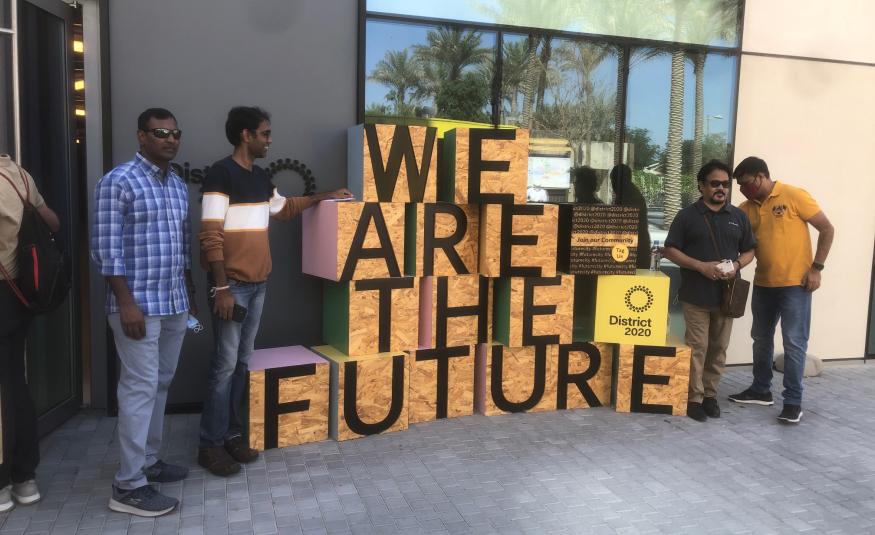From educational support and Covid-19 response effectiveness, to providing new income channels for women, a number of organisations and start-ups – all supported by Expo 2020 Dubai – have come up with innovative ideas to minimise the impact of the pandemic on their communities and better equip them for the future.
These projects span both Expo 2020’s Global Best Practice Programme and Expo Live, the Innovation Impact Grant Programme. which are highlighting projects that have provided tangible solutions to the some pressing challenges and can be replicated elsewhere.
Five of these projects include:
- Ensuring safe handwashing practices in rural communities
UAE-based Project Maji – a Global Best Practice Programme project – devised the Maji Bucket to enable access to safe water. This low-tech and low-cost invention, produced by people in Ghana, ensured safe handwashing in rural communities. A foot-operated solution is part of the device that eliminates the need for touch and curbs the spread of bacteria. At US$30, the bucket is made of locally available products that allow for its easy replication.
- Loans and financial training to low-income students
Filipino fintech start-up InvestEd is among the Expo Live grantees, known as Global Innovators, which received assistance during the height of the Covid-19 pandemic through the US$1m Emergency Relief Fund (ERF). InvestEd provides loans and financial training to low-income students, allowing them to complete their college education. The ERF also offers coaching services to help students find job opportunities.
- Supporting vulnerable women to grow successful home-based businesses
Part of the Best Practice Programme, SitatByoot works directly with vulnerable communities – primarily women – in Jordan, helping them enter the labour market and grow their businesses online. In light of Covid-19, it launched a new vocational training programme, Tadreeb Live, focusing on sewing, crocheting, embroidery, and entrepreneurial skills, which can be delivered both online and offline. Women learn to accelerate their online home-based businesses, have opportunities to be employed by local garment factories, or become a certified ‘Maker’ through SitatByoot’s sister eCommerce website, Makesy, which facilitates business opportunities for the women.
- Enabling fast and effective Covid-19 responses in rural populations
Overcoming misinformation and enabling communities to check their symptoms accurately is critical to a fast, effective Covid-19 response. Best Practice Programme project reach52 delivers healthcare to rural populations across low- and middle-income countries through its ‘offline-first’ health platform and networks of agents. Through its platform, using offline-first mobile apps to provide education and support in hard-to-reach communities, mainly in the Philippines, Cambodia and India, the organisation has helped upskill 6,000 community health workers and estimated engagement with more than 500,000 residents since the start of the pandemic.
- Mental health services for youth
An initiative of a UK-based mental health organisation, the MeeToo app alleviates anxiety by helping teenagers talk about difficult issues – including the emotional strain of the pandemic. Another ERF grantee, MeeToo used the additional funds to provide round-the-clock counselling services to at-risk children and teenagers in need and saw its user base more than double between January 2020 and January 2021. MeeToo has supported more than 60,000 people between the ages of 11 and 25 since launching in 2017.
To speak to representatives of the above projects – or any other Global Best Practice Programme or Expo Live projects providing innovative solutions to the challenges of Covid-19 please contact press.office@expo2020.ae





